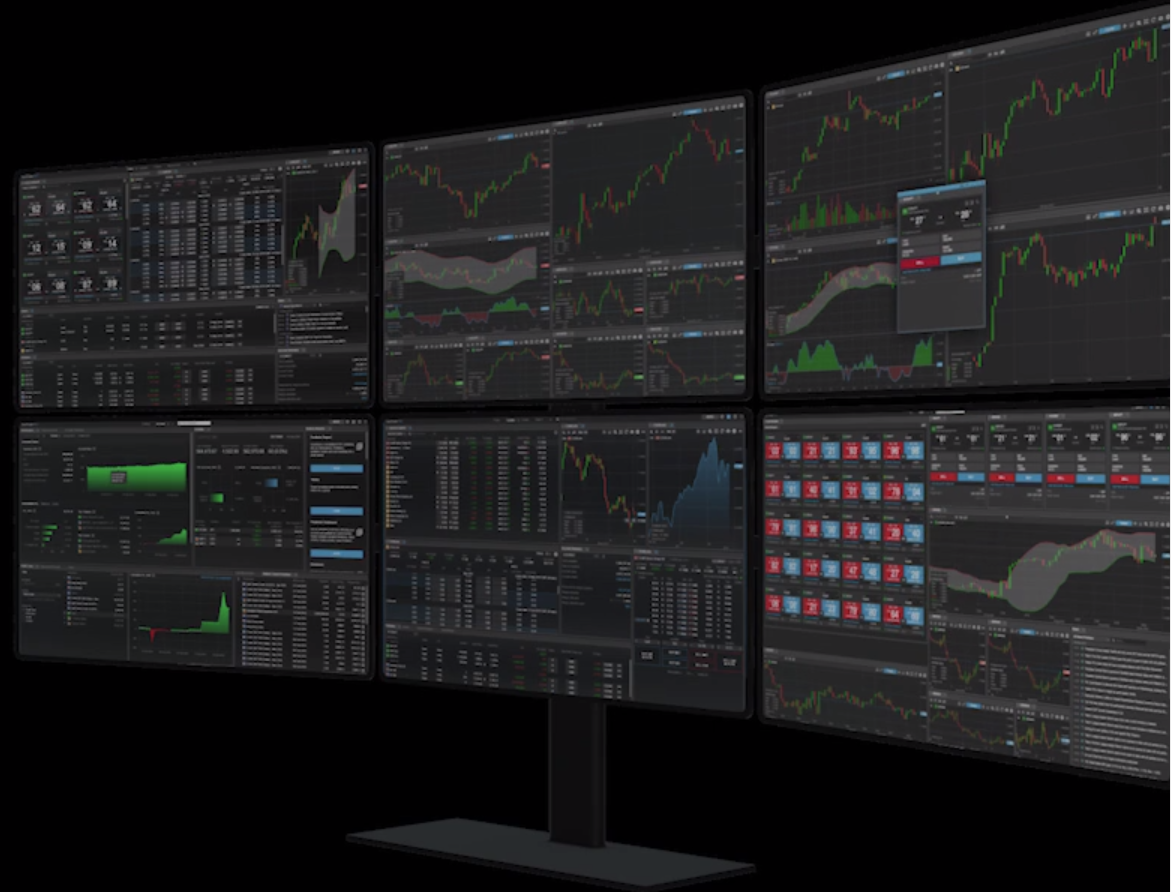As two of the world’s leading international low-cost online brokers, we have been very glad to be able to offer a choice to clients on whether they want to hold their GFM-managed accounts at Interactive Brokers (IBKR for short) or Saxo, so naturally we are often asked to compare the relative strengths, advantages, and costs of Interactive Brokers vs Saxo as a choice for where to open an account.
Below are some of the main points I’ve noted so far in my experience with Interactive Brokers vs Saxo as a money manager. One important grain of salt: I may still be biased as I have been using Interactive Brokers for over 18 years (since 2000), but only started using SaxoTraderPro this year (2018).
#1: Capabilities
One reason IBKR and Saxo top my list is that both make it easy to have one account that can hold multiple currencies and trade stocks, bonds, ETFs, futures, options, and other financial instruments across multiple exchanges on multiple continents. Both make it relatively easy and inexpensive to get money in and out between your IBKR or Saxo account and your local bank accounts in the US, Europe, Hong Kong, or other locations, in local currency. This is one big advantage I believe both hold over single-country platforms like Vanguard.
Saxo’s main advantage I have seen here so far is their impressive bond platform, which I am keen to use more of for fixed income portfolios in our pension plans. Saxo has also indicated they may soon provide access to some ASEAN markets IBKR does not currently offer.
#2: Is my money safer at Interactive Brokers vs Saxo?
Interactive Brokers has an S&P rating of BBB+ with positive outlook as of this writing. This is low compared to many other banks that often aim for at least an A+ or AA- rating, but still investment grade. As a public company, IBKR also files its financial statements on the SEC’s Edgar database. From what I’ve seen on statements, IBKR is straightforward about keeping US securities in DTC, UK securities in CREST, Australian securities in CHESS, etc. across central depositories, which is a world-class standard.
Saxo has chosen not have a credit rating, but has posted financial information on their website. Saxo uses Citi as a global custodian for securities, which is why they charge the 0.12%/year custody fee.
In both cases, Hong Kong accounts are protected by strict SFC requirements to safeguard client assets and maintain adequate local capital. Brokerage accounts in Hong Kong are also protected by the Investor’s Compensation Fund.
Interactive Brokers US accounts are protected up to US$500,000 by SIPC, with a further US$30-150 million of cover provided by Lloyd’s of London.
Hong Kong investors with large enough positions might find it worthwhile to transfer their shares over to an individual investor account at the HKSCC for safekeeping.
#3: Cost
I have long found IBKR to be far and away the cheapest platform for most individual accounts to execute trades on, and only this year heard Saxo tell me they would match IBKR on price.
As a benchmark on stock trading costs, IBKR still has lower per-share and minimum costs of, for example, $0.005/share with US$1 minimum for US stocks and 0.08% with HK$18 for Hong Kong stocks, while Saxo posts a trading cost of US$0.01/share with US$7-10 minimum for US stocks and the same 0.08% but with HK$40 minimum for Hong Kong stocks.
I have yet to fully test this on Saxo, but it is my understanding that this minimum trading cost is on a per-account basis in Saxo, while I have been able to spread these minimum costs among many smaller account within IBKR. This has made IBKR a better choice so far for smaller accounts.
Saxo also charges a 0.12% custody fee and US$100/6 months inactivity fee, while IBKR generally does not charge custody fees beyond a few IRA fees or a minimum commission spend on the order of US$10/month. This makes Saxo somewhat more expensive for larger accounts, but still significantly less expensive than many banks.
IBKR’s margin rates are significantly lower than almost any other brokers, typically only 0.5 – 1.5% above the benchmark for major currencies, and only 5% over the benchmark for currencies like the Chinese Yuan (renminbi), Hungarian Forint, and Israeli Shekel. I have not been able to find as detailed a schedule for Saxo, but under “Account Interest (Retail)“, it says they will charge market as rates plus 8% or more. While we do not generally use margin for leverage, IBKR’s low margin rates make it relatively inexpensive to hedge currency risk in foreign stock purchases by financial such shares in local currency, while Saxo auto-converts the currency on foreign stock trades with a 0.5% FX spread. Saxo’s approach here is in many ways cleaner and more convenient, but it is important to understand the difference in cost and risk between these two approaches to building an international stock portfolio.
I earlier showed how I use IBKR’s competitive FX rates as one of the lowest cost ways to transfer money between accounts of different currencies in different countries.
#4: Account opening experience and user interface
On a few key “human” elements, I will say Saxo definitely has an advantage in providing more personal customer service and a cleaner and more modern user interface.
Opening a Saxo account involves filling out a thorough PDF form. Although we set this up on our online platform for e-signature, Saxo still asks us to print out and wet sign over the e-signature on these forms, which is not all bad given that Saxo does have a nice office in the Landmark in Central Hong Kong. Their team has also been very responsive to helping with any issues with account opening or setting us up to manage existing Saxo accounts in Hong Kong or elsewhere.
Interactive Brokers accounts are opened almost entirely online, and IBKR Hong Kong requires a wet signed paper copy of a simple two-page acknowledgement form and ID copy. Opening an IBKR account in the US is 100% paperless.
#5: Investment Accounts for Americans
As a US firm, IBKR have the clear advantage in being able to open a US brokerage account for US persons living in Hong Kong or elsewhere overseas. Interactive Brokers provides full support for IRA accounts and 401k rollovers, but not HSA accounts or 529 plans. IBKR is also good about issuing thorough 1099 and other important forms for US tax filing.
Like many of the better Singaporean banks, Saxo will open brokerage accounts for US persons, but will not allow these accounts to trade US securities (fair enough, given that Americans generally open these accounts to access foreign markets anyway).
Conclusion
When given a choice between two things, i generally like to choose the option of “both”. Hopefully the above comparisons have helped show where I prefer to keep accounts and execute trades on Interactive Brokers vs Saxo.
I look forward to hearing your comments and questions.
Header image source: SaxoTraderPro

